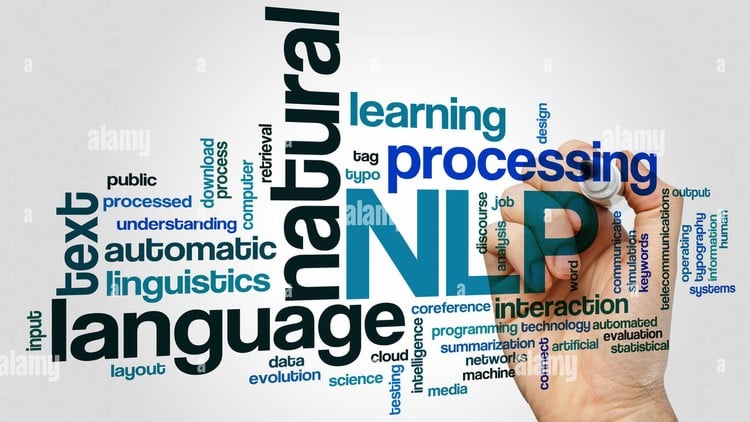
NLP & Deep Learning: Master Text Preprocessing, Embeddings, Transformers, & LLMs for Advanced AI Applications.
⭐ 2.75/5 rating
👥 1,917 students
🔄 October 2025 update
Add-On Information:
Note➛ Make sure your 𝐔𝐝𝐞𝐦𝐲 cart has only this course you're going to enroll it now, Remove all other courses from the 𝐔𝐝𝐞𝐦𝐲 cart before Enrolling!
-
Course Overview
- This comprehensive Certified Natural Language Processing (NLP) course fully immerses participants in the foundational theories and cutting-edge practical applications of understanding, processing, and generating human language through advanced artificial intelligence. It integrates deep learning methodologies to move beyond traditional NLP, equipping learners with expertise in state-of-the-art techniques.
- The curriculum is meticulously designed to provide a robust learning journey, spanning from the fundamental mechanics of text preprocessing to the intricate architectures and applications of Large Language Models (LLMs). This structure ensures a holistic grasp of modern NLP.
- Benefiting from an ‘October 2025 update’, the course guarantees access to the most current advancements and industry best practices. It emphasizes hands-on implementation and problem-solving, preparing students to tackle complex real-world challenges and develop sophisticated AI applications that interpret and respond to human language with precision.
-
Requirements / Prerequisites
- Strong Python Proficiency: Essential working knowledge of Python, including object-oriented programming (OOP) concepts, fundamental data structures, and familiarity with scientific computing libraries like NumPy and Pandas, is crucial for practical model implementation.
- Mathematics Fundamentals: A basic understanding of linear algebra (vectors, matrices, operations), calculus (gradients, derivatives), and probability theory (conditional probability, Bayes’ theorem) will significantly aid in comprehending the underlying mechanisms of machine learning and deep learning algorithms.
- Machine Learning Basics: Prior exposure to core machine learning concepts, such as supervised versus unsupervised learning, model evaluation metrics, techniques for mitigating overfitting, and cross-validation, will provide a valuable contextual foundation for the advanced topics covered.
- Data Science Familiarity: Experience with data manipulation, visualization, and exploratory data analysis (EDA) techniques is highly beneficial, as NLP projects often begin with extensive data cleaning, preparation, and feature engineering.
-
Skills Covered / Tools Used
- Core NLP Fundamentals: Gain mastery in essential text preprocessing techniques, including tokenization, stemming, lemmatization, stop word removal, and text normalization, which are crucial for preparing raw textual data for effective analysis.
- Advanced Feature Engineering: Explore and implement various word embedding techniques such as Word2Vec, GloVe, and FastText, alongside contextual embeddings derived from models like BERT, to capture sophisticated semantic relationships within text.
- Deep Learning Architectures for NLP: Dive deep into neural network models specifically designed for sequential data processing, including Recurrent Neural Networks (RNNs), Long Short-Term Memory (LSTMs) networks, Gated Recurrent Units (GRUs), and Convolutional Neural Networks (CNNs) for text.
- Mastering Transformers: Understand the revolutionary Transformer architecture in detail, delve into the attention mechanism, and learn to implement and fine-tune prominent pre-trained models such as BERT, various GPT architectures, and T5 for diverse downstream NLP tasks.
- Large Language Models (LLMs): Acquire practical skills in working with pre-trained LLMs, including effective prompt engineering strategies, fine-tuning techniques for specific application domains, and an introduction to the ethical considerations and challenges associated with their responsible deployment.
- Practical AI Application Development: Learn to build and deploy end-to-end NLP applications for a range of tasks, including sentiment analysis, named entity recognition (NER), text summarization, machine translation, and question answering systems.
- Industry-Standard Tools and Libraries: Proficiently use Python alongside powerful and widely adopted libraries such as NLTK, SpaCy, scikit-learn, TensorFlow, Keras, PyTorch, and the Hugging Face Transformers library for efficient model development, experimentation, and deployment.
-
Benefits / Outcomes
- Industry-Ready Expertise: Graduates will be fully prepared to design, develop, and deploy advanced NLP solutions across various domains, from enhancing sophisticated customer service chatbots to creating cutting-edge content generation systems.
- Accelerated Career Advancement: Position yourself for high-demand roles within the AI and data science ecosystem, such as NLP Engineer, Machine Learning Scientist, AI Researcher, Data Scientist with an NLP specialization, or Computational Linguist. The certification validates your proficiency in cutting-edge techniques.
- Deep Theoretical & Practical Understanding: Gain not only a comprehensive grasp of the theoretical underpinnings of modern NLP but also extensive hands-on experience in implementing these concepts using industry-standard tools and frameworks. This blend ensures robust, applicable knowledge.
- Enhanced Problem-Solving Acumen: Develop the critical ability to analyze complex linguistic problems, select the most appropriate NLP models and techniques, and execute effective solutions, thereby contributing significant value to organizations.
- Stay Ahead of the Curve: With the prominent ‘October 2025 update’, you are assured of learning the absolute latest developments, including proficiency with Transformers and Large Language Models, which are pivotal in today’s AI landscape, ensuring your skills remain relevant and highly sought after.
-
PROS
- Comprehensive and Current: Covers a broad spectrum of modern NLP, from foundational text processing to advanced LLMs and Transformers, with a significant ‘October 2025 update’.
- Strong Practical Focus: Emphasizes hands-on application and project-based learning using industry-standard tools and libraries like Hugging Face, TensorFlow, and PyTorch.
- Deep Learning Integration: Seamlessly combines deep learning principles with NLP, offering powerful methodologies for solving complex language understanding and generation tasks.
- High Career Relevance: Directly equips participants with highly demanded skills for leading roles in the rapidly expanding fields of AI, Machine Learning, and Data Science.
-
CONS
- The relatively low student rating of 2.75/5 (from 1,917 students) suggests potential areas for improvement in course delivery, clarity of explanations, or instructional support that might impact the learning experience for some participants.
Learning Tracks: English,IT & Software,Other IT & Software
Found It Free? Share It Fast!